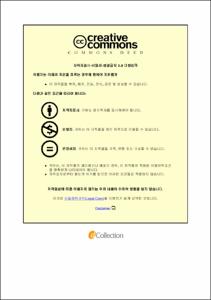순환여과식 양식 시스템에서 넙치(Paralichthys olivaceus)의 사육밀도가 생산성과 스트레스에 미치는 영향
- Alternative Title
- Effects of stocking density on productivity and stress of olive flounder (Paralichthys olivaceus) in recirculating aquaculture system
- Abstract
- Olive flounder (Paralichthys olivaceus) is the one of the representative aquaculture species in Korea. Currently the olive flounder industry has suffered from increased disease outbreak, deteriorated water quality due to the coastal pollution, increased production expenses, resulting in decreased productivity. To cope with these issues for the decreased productivity, the recirculating aquaculture system (RAS) is considered an alternative. The RAS is a closed system that develops extreme internal environments and thus requires intensive management regimes. However, the baseline data to efficiently operate the RAS for olive flounder is still lacking.
Stocking density is the one of the most important factors that affect on the productivity and economics in aquaculture. This study evaluated the productivity and stress levels of olive flounder on the various stocking density in the RAS. A 8-week growth experiment was conducted with initial stocking densities of 3.29, 4.84, 7.14, and 8.56 kg/m2. The specific growth rates at stocking densities of 7.14 and 8.56 kg/m2 were significantly higher than those at the other stocking density. However, in whole body proximate composition analysis, the lowest crude protein showed at the highest stocking density. No significant differences were found in the insulin like growth factor-1 (IGF-1), growth hormone (GH), glucose, glutamic oxaloacetic transaminase (GOT), glutamic pyruvic transminase (GPT), superoxide dismutase (SOD), while the cortisol level was significantly higher in the highest stocking density compared to the others. Overall, the productivity of olive flounder in the RAS was enhanced with the biomass management regime that the fish are stocked initially at a stocking density of 7.14 kg/m2 (covering rate of 0.82) and cultured to 20.17 kg/m2 (covering rate of 1.52).
- Issued Date
- 2020
- Awarded Date
- 2020. 2
- Type
- Dissertation
- Publisher
- 부경대학교
- Alternative Author(s)
- Junhyuk Seo
- Affiliation
- 부경대학교 대학원
- Department
- 대학원 수산생물학과
- Advisor
- 박정환
- Table Of Contents
- I. 서론 1
II. 재료 및 방법 4
II-1. 사육 시스템 구성 4
II-2. 생물 사육 10
II-3. 수질 분석 14
II-4. 어체 일반성분 분석 16
II-5. 혈액학적 분석 16
II-6. 통계 분석 17
III. 결과 18
III-1. 생존율 및 성장 18
III-2. 수질 분석 21
III-3. 어체 일반성분 분석 27
III-4. 혈액학적 분석 29
IV. 고찰 33
요약 37
감사의 글 38
참고문헌 40
- Degree
- Master
- Files in This Item:
-
-
Download
 순환여과식 양식 시스템에서 넙치(Paralichthys olivaceus)의 사육밀도가 생산성과 스트레스에 미치는 영향.pdf
기타 데이터 / 488.79 kB / Adobe PDF
순환여과식 양식 시스템에서 넙치(Paralichthys olivaceus)의 사육밀도가 생산성과 스트레스에 미치는 영향.pdf
기타 데이터 / 488.79 kB / Adobe PDF
-
Items in Repository are protected by copyright, with all rights reserved, unless otherwise indicated.